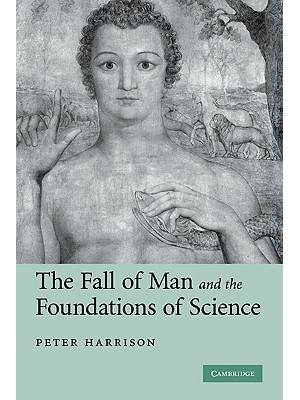
- Details
- Category: Recommended Reading Recommended Reading
- Published: 16 May 2010 16 May 2010
- Hits: 3656 3656

I mentioned in a recent post that while on sabbatical in England I found myself reading a good bit on the question of origins (of man and created order) and on the nature of science. Another wonderful find has been the work of Peter Harrison. The book I am reading is his The Fall of Man and the Foundations of Science (Cambridge, 2007). In this volume Harrison argues that there is a correlation of sorts between one's anthropology (doctrine of man) and one's view of science. If one sees man as truly fallen, where sin effects one's ability to think, reason, understand, etc., then this will manifest itself in a view of science which advocates strenuous efforts to think hard and long about the created order and what it means (i.e., since we are fallen science is a lot of work). If one does not have as serious/rigorous view of the fall, then the scientific endeavor is not saddled with such an uphill and difficult intellectual battle.
To cut to the point, the Reformation traditions (themselves indebted to Augustine) took seriously the noetic effects of the fall, and that one of the goals of science was to repair what Adam lost in the fall. Having just wrapped up my book, The Gospel and the Mind: Recovering and Shaping the Intellectual Life (Crossway, 2010), I found myself quite intrigued with his argument. As Harrison sees it, at the inception of modern science was a type of theological quest--the quest to restore what Adam lost in the fall--and one of the things he lost was a greater and more expansive knowledge of things. I think it is clearly biblical that sin effects our intellectual life (and hence the gospel is necessary to any meaningful recovery of the intellectual life). Thus, modern science was--at least in part, and at one point--rooted in a theological understanding of reality (man as created and fallen and in need of redemption), and (1) there was a theological rationale motivating science, and (2) science had a transcendent and theological telos (end or goal)--to help man become what he might become (now in light of his fallen status).